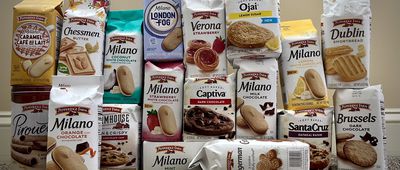Big Mistakes
These days people are stocking up more than ever (especially on toilet paper) but it's critical to do it the right way. Shopping at a warehouse club like Costco or Sam's Club can save you a ton, but it can also be an exercise in frustration. What's going to go bad before you can use it all? Which items might be cheaper during your usual grocery run? To help, we've compiled a list of products that may not always be better to buy in bulk, even in a crisis.
Related: 25 Things to Buy at Costco and Sam's for Emergencies (Besides Toilet Paper)





























